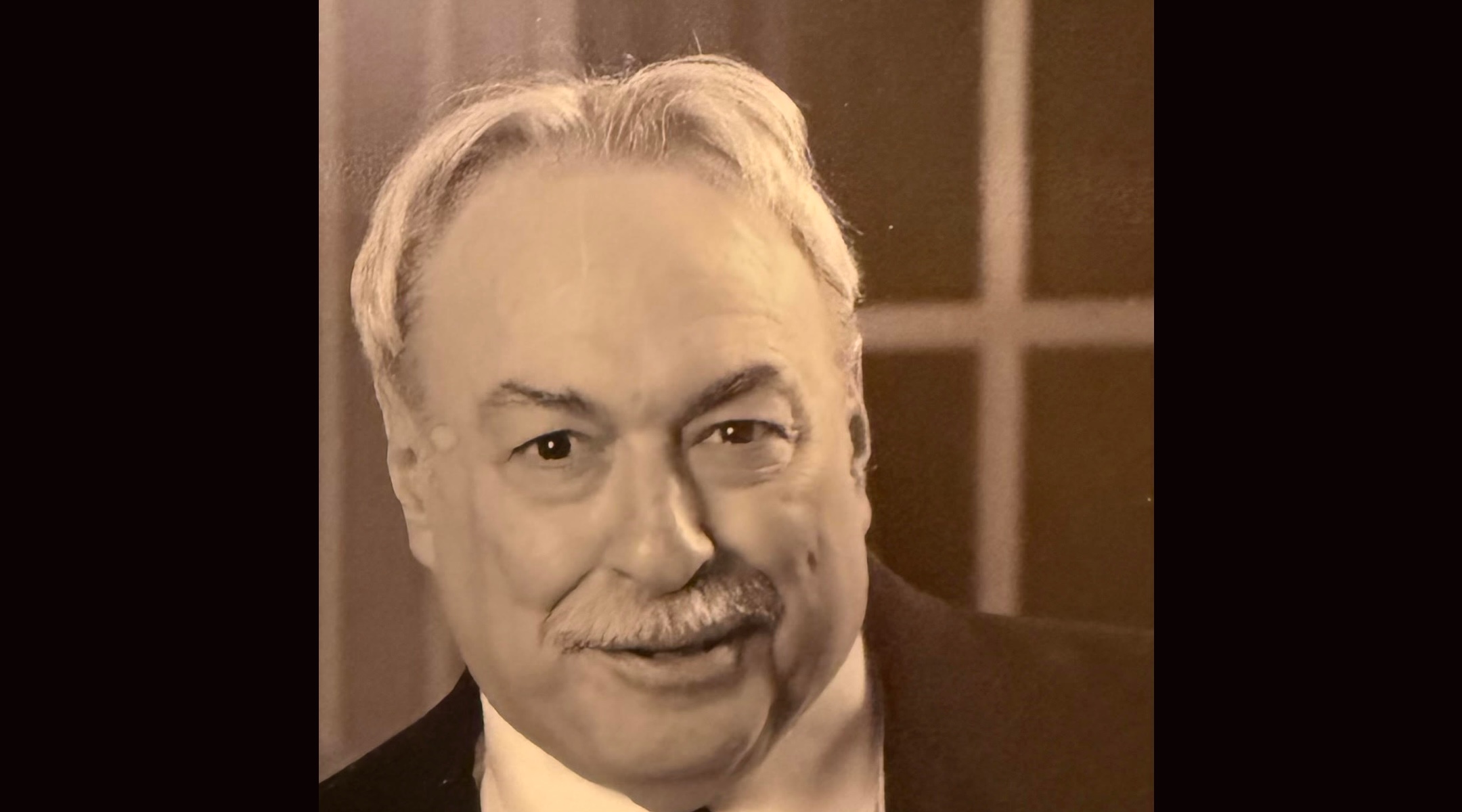Jesse Cogan, ad exec who coined the slogan ‘Turn Friday Night into Shabbos,’ dies at 74
Cogan also created slogans for the Soviet Jewry movement and a group that championed Modern Orthodoxy

Jesse Cogan coined several slogans that spread widely in the Jewish world in the 1980s and 1990s. (Courtesy Cogan family)
(JTA) — In 1980, a Manhattan synagogue with a special outreach to unaffiliated Jews was looking for a catchy slogan to encourage young people to take on the rigors of Shabbat observance. Jesse Cogan, a synagogue member who was also a media consultant, came up with just the right words.
“Turn Friday Night into Shabbos,” Cogan wrote.
That slogan would spread well beyond his synagogue, becoming the rallying cry of the Jewish outreach movement, which worked to bring Jews closer to Jewish ritual practice. It was the motto of an initiative by the National Jewish Outreach Program that, by its own estimate, engaged more than half a million people across 1,900 synagogues in Shabbat experiences in a decade.
But “Turn Friday Night into Shabbos” was only one of Cogan’s unforgettable Jewish slogans. For the Soviet Jewry movement of that era Cogan wrote, “Their Fight is Our Fight.” For a Jewish school, he wrote, “It’s not what you learn, it’s what you become.” And for Edah, a group that championed Modern Orthodoxy, he coined, “The Courage to be Modern and Orthodox.”
The creative force behind these slogans died Jan. 9 at a nursing home on New York’s Long Island. He was 74.
At his funeral Sunday at a packed chapel in Manhattan, Rabbi Saul Berman of Yeshiva University said Cogan was more than just a clever wordsmith. “His genius resided in his ability to capture the spiritual imagination,” he said. “In a few words he could light a fire in someone’s soul. He changed the direction of the lives of tens of thousands of Jews.”
Cogan was also eulogized by Rabbi Shaul Robinson, the rabbi of Lincoln Square Synagogue, the congregation where “Turn Friday Night into Shabbos” was first used. He called Cogan “a brilliant, brilliant individual who used his passion and extraordinary learning and combined it with a creative genius to do something completely new, unprecedented and largely unappreciated.”
Cogan was also an author and a filmmaker. He was the writer for an animated film called “Rashi: A Light After the Dark Ages” (1999), that introduces children to the biblical commentator who was also a rabbi, lawyer and vintner. The film is voiced by Leonard Nimoy and Paul Scofield. Cogan also wrote a book about being an uncle called “The Uncle Book: Everything You Need to Know to be a Kid’s Favorite Relative,” published in 2002 by Hachette.
Jesse Cogan was born on June 9, 1950, to Rabbi Leo and Ruth Cogan. Steeped in a dual Orthodox heritage, his mother from a Hasidic family and his father from the more rational Lithuanian lineage, he attended Yeshiva University High School in Brooklyn and later Yeshiva College in Manhattan. He then got a master’s degree in communications from Boston University before being hired as a copywriter at J. Walter Thompson, the flagship advertising agency for most of the 20th century. He worked on campaigns for such products as Burger King and Kodak.
He later opened Jesse Cogan Associates in Manhattan where he created campaigns for numerous Jewish communal, educational and philanthropic organizations.
He is survived by his mother Ruth, his wife Naomi and their two children, Max and Riva. He also leaves a brother, Hirsh Cogan, of Scarsdale, New York, and a sister, Rebecca Machlis, of Jerusalem.
In the Jewish Literary Journal, Cogan wrote about his own physical and mental health challenges, describing how, as a young man visiting Israel, he was in a serious motor scooter accident from which he never fully recovered; he also describes being diagnosed with and managing bipolar disorder. Later in his life when his kidneys failed, he got a kidney transplant from his younger brother.
At the funeral on Sunday, several speakers faced Cogan’s casket and asked for forgiveness on behalf of the Jewish community that he served. “Jesse often believed that he did not get enough credit,” Berman said. “And it was true. He did not get enough credit for his work.”
Robinson offered an apology on behalf of the Jewish people for not giving Cogan, whom he called “a creative soul, a giant soul, a turbulent soul,” his due.
“His achievements and contributions are sadly overlooked and need to be remembered,” he added.















